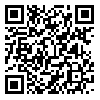Wed, Feb 18, 2026
[Archive]
Volume 7, Issue 2 (8-2025)
Int. J. Ethics Soc 2025, 7(2): 13-24 |
Back to browse issues page
Download citation:
BibTeX | RIS | EndNote | Medlars | ProCite | Reference Manager | RefWorks
Send citation to:



BibTeX | RIS | EndNote | Medlars | ProCite | Reference Manager | RefWorks
Send citation to:
Habib Yasser S, Jafarzadeh S, Nikkhah Saranghi R. Ethical Dimensions of Forgery and Comparative Analysis of Computer Forgery and Traditional Forgery in Iranian and Iraqi Law. Int. J. Ethics Soc 2025; 7 (2) :13-24
URL: http://ijethics.com/article-1-355-en.html
URL: http://ijethics.com/article-1-355-en.html
1- Ph.D. Student of Criminal Law and Criminology, Department of Jurisprudence and Islamic Law, Faculty of Literature and Humanities, Urmia University, Urmia, Iran
2- Department of Jurisprudence and Islamic Law, Faculty of Literature and Humanities, Urmia University, Urmia, Iran ,s.jafarzadeh@urmia.ac.ir
3- Department of Jurisprudence and Islamic Law, Faculty of Literature and Humanities, Urmia University, Urmia, Iran
2- Department of Jurisprudence and Islamic Law, Faculty of Literature and Humanities, Urmia University, Urmia, Iran ,
3- Department of Jurisprudence and Islamic Law, Faculty of Literature and Humanities, Urmia University, Urmia, Iran
Abstract: (1126 Views)
Introduction: Forgery is a reprehensible and immoral behavior that usually aims at financial gain, but may be done to influence the opinion of one person, deceive another, or simply to cause harm. Given the technological developments and the expansion of the use of digital tools, computer forgery has become one of the serious challenges in legal systems. Therefore, the aim of the present study is to examine the ethical dimensions of forgery and comparative analysis of computer forgery and traditional forgery in Iranian and Iraqi law.
Material and Methods: This study used reliable sources and international scientific articles in the field of ethical consideration of forgery and comparative analysis of computer forgery and traditional forgery.
Conclusion: Since the emergence of writing and the beginning of the use of writing to convey intentions and thoughts, distortion and alteration of lines and words have been recognized as immoral, undesirable and criminal acts. In Islamic law, forgery is recognized as one of the examples of Ta’zir crimes, and the Holy Quran has also considered this act immoral and reprehensible and has included it among the sins. With the comparative analysis presented regarding computer forgery and electronic documents in Iranian and Iraqi law, general and practical conclusions can be reached. This study showed that both legal systems, despite similarities in the main concepts and objectives of the laws, have different approaches in formulating and implementing regulations related to forgery and electronic documents.
Material and Methods: This study used reliable sources and international scientific articles in the field of ethical consideration of forgery and comparative analysis of computer forgery and traditional forgery.
Conclusion: Since the emergence of writing and the beginning of the use of writing to convey intentions and thoughts, distortion and alteration of lines and words have been recognized as immoral, undesirable and criminal acts. In Islamic law, forgery is recognized as one of the examples of Ta’zir crimes, and the Holy Quran has also considered this act immoral and reprehensible and has included it among the sins. With the comparative analysis presented regarding computer forgery and electronic documents in Iranian and Iraqi law, general and practical conclusions can be reached. This study showed that both legal systems, despite similarities in the main concepts and objectives of the laws, have different approaches in formulating and implementing regulations related to forgery and electronic documents.
Keywords: Computer forgery, Electronic evidence, Iranian law, Iraqi law, Proof of crime, Digital evidence, Comparative analysis
Type of Study: Review Article |
Subject:
Special
Received: 2025/03/15 | Accepted: 2025/04/8 | Published: 2025/08/13
Received: 2025/03/15 | Accepted: 2025/04/8 | Published: 2025/08/13
Send email to the article author
| Rights and permissions | |
 |
This work is licensed under a Creative Commons Attribution 4.0 International License. |







